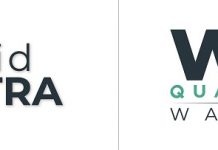Baytouch’s CEO Malcolm Pollard looks at the long-term impacts of REACH, the costs and opportunities it creates.
It seems like only yesterday that the EU’s REACH Regulation, billed at the time as the World’s most ambitious chemicals legislation, came into force in 2007. At the time we were all anxiously considering the impact of the first registration deadline in 2010, and with such high stakes in play to get those fundamental high tonnage chemical substances through, had little time to consider what impact the phased registration process may have on the chemical manufacturing and handling supply chain in the longer term.
Today, the wider impacts of REACH and other regulatory controls are now beginning to be felt within businesses of all sizes, and are affecting how products are purchased, manufactured, formulated and sold. Trade associations with a high number of small and medium size (SME) members, have commented on how the costs of REACH have fallen disproportionately on SMEs.
So, what strategies can businesses adopt to deal with the tsunami of compliance paperwork, which affects all businesses but tends to be relatively more burdensome for SMEs?
Satisfying REACHs objectives means unprecedented communication flows, all to be managed and directed, and additional data to be collected and stored. This exchange of standardised information applies in varying degrees to many businesses; manufacturers and importers, formulators, article manufacturers, distributors and retailers, especially those who import to the EU.
The key to controlling all of this is to have robust and structured business processes.
Take a straightforward situation of a typical distributor, sourcing products to repackage and sell on. Some of the information they will need to collect includes:
• SDSs from different suppliers of the same product, all to be reviewed and possibly re-edited before being made available to customers;
• Multiple declarations of conformity which may be by supplier, by product, by product batch, and may have limited validity.
Research carried out by Baytouch over the last 2-years has shown that many SMEs, especially those with lean sourcing and supply operations, are finding themselves especially vulnerable. The low-tech solutions used to address ever-increasing paperwork are typically PC-based office tools and filing cabinets, in conjunction with their accounts software. These are fast approaching breaking point and pose a long term threat to business viability because they are neither robust nor transparent enough to meet regulatory requirements.
Yet your business’ license to operate requires you to ensure that all of the above compliance information is collected, validated, stored and current.
It is worth considering the opportunities these businesses might realise from improving processes to cope with the sheer volumes of compliance paperwork. For many, existing data handling processes are frequently manual and handled by small regulatory teams (sometimes 1 person wearing several hats). They can require the access and storage of information in differing formats and in different places. Periodic updates to some documents may be required but not automatically generated, nor visible to others in the organisation.
Companies that have invested in Enterprise Resource Planning (ERP) systems won’t find it without pain to accommodate some centralised document storage and process automation into these. But once set up, the operations are more easily assimilated into everyday business management.
For most SMEs on the other hand, the cost of such systems is way off the affordability scale. However, this needn’t and shouldn’t be a barrier to developing a structured approach to the long term storage and accessibility of compliance information. Nor does it preclude an integrated, technology-enabled solution.
The benefits cannot be ignored; business risk is reduced and environmental impacts are minimised. Supply chain transparency and information at your fingertips will in turn create enhanced opportunities by being able to satisfy the information requirements of your customers (and those of the regulator, should they come calling).
Baytouch has developed a cloud-based software solution, ProductTraq, which addresses these supply chain compliance and data storage challenges. We are presently engaging with a number of trial customers to develop case study materials and industry best practice exemplars. I look forward to sharing the outcomes of this in future issues.
If you would like more information on ProductTraq or are interested in becoming a triallist, please email malcolm.pollard@baytouch.com or connect with Malcolm on Twitter
(@malcolmpollard) or LinkedIn (linkedin.com/in/malcolmpollard).











